The First Sexton Blake Read online
Page 2
The detective studied the photograph for a few seconds; then he bade the vet a hurried farewell, and returned to the car.
“Victoria Station!” he said, as he sprung in. “As fast as you can make her travel!”
The car dashed away, and seventy minutes later drew up in Victoria station-yard.
At Dover all doubt was set at rest as to whether Major Brett was in the train. The detective saw him alight, recognised him by the photograph he had seen in the vet’s consulting-room, and followed him aboard the steamer.
From Dover to Calais—from Calais to Paris—and in Paris, which was reached at a quarter to seven in the evening—from the Gare du Nord to the Hôtel Mimosas, in the Rue Caumartin, he shadowed his unsuspecting quarry.
“I wired to you from London this morning to reserve me a private sitting-room and a bed-room,” he heard the major say to the manager of the hotel.
“What name, sir?” asked the manager.
“Smith,” said the major unblushingly.
The manager consulted his book, and beckoned to the hall-porter.
“Forty-nine,” he said. Then be turned to Brett. “Your sitting-room and bedroom are en suite, sir,” he said, “on the first Hour. Dinner will be ready at half-past seven.”
“I shall not take dinner tonight,” said Brett. “I may have something later in my room: but I’m expecting a gentleman to call to see me at eight o’clock. Monsieur Picot is his name. Will you please show him up to my room as soon as he arrives?”
The manager promised that he would, and the major followed the hall-porter to the lift.
“So Sir Otto was right,” murmured Sexton Blake as he turned on his heel and left the hotel, after asking for somebody who he knew was not there. “Picot at Fils are at the bottom of this. And yet that doesn’t follow,” he added. “Percival and Brett may have concocted this plot between them, and Brett may simply have wired to Paris this morning, asking Picot to meet him at the Mimosas at eight o’clock tonight. In any case, whether Picot knew of the plot beforehand or not, he doubtless knows by now that Brett has the report and is willing to sell it. Even if Brett only wired to him this morning, he would he sure to tell him that; or, at any rate, to give him a hint. And, unless I can prevent it, the report will pass into Picot’s hands tonight.
“Unless I can prevent it,” he mused. “Can I? Of course, I’ve no legal evidence against Brett, and, even if I had, I couldn’t have him arrested and searched before eight o’clock. And if once old Picot gets bold of the report, all is lost.”
He pondered for a moment or two; then a daring idea occurred lo him.
“It’s risky,” he muttered. “But it might come off.”
He hailed a passing cab, and drove to a big theatrical costumier’s in the Rue Rivoli. He was only in the shop a few minutes, yet when he came out he was no longer a young, clean-shaven Englishman, but—in appearance—an elderly Frenchman, with a grey, pointed heard and hair of the same hue.
“If he knows Picot, I’m done,” he mused, as he retraced his steps to tho Hue Caumartin. “But it’s a hundred to one he doesn’t. Anyhow, I’ll risk it.”
It was barely a quarter to eight when he reached the Hôtel Mimosas.
“There is it gentleman staying here named Smith,” he said to the manager, in faultless French. “I wish to see him.”
“Ah, you are Monsieur Picot, no doubt,” said the manager. “Yes, Mr. Smith is expecting you.”
Sexton Blake heaved a sigh of relief. He had not disguised himself Jo resemble M. Picot of, course, for the simple reason that he had not a ghost of an idea what M. Picot was like. He had merely made up as an elderly, grey-haired Frenchman, and if He manager had happened lo know M. Picot, the detective’s trick would have been exposed at the very outset of his programme.
But the manager suspected nothing—he called lo one of the waiters and instructed him to conduct the detective to No. 49.
The detective walked into the room. Brett came forward with outstretched hand. The waiter closed the door retired.
“I hope you speak English, Monsieur Picot?” said the major, somewhat anxiously.
“But yes,” said the detective, “I speak English veree well. And you? Is it that you do not speak our language?”
“No,” said Brett, “English is the only language I know—and the only one I want to know!”
Again a look of relief crossed the detective’s face. The stolen report was written in Spanish. If English was the only language which Brett knew, he could not have read the report, and, therefore, would not be able to tell Monsieur Picot what it contained if he—Sexton Blake—could recover it before the Frenchman saw it.
Brett observed the look which flashed into the detective’s face, and misinterpreted it.
“You’re wondering,” he said, “how I wrote that telegram, if I didn’t know French?”
“Certainly the telegram was in French,” said Sexton Blake, making a blind shot.
“Of course it was, but it wasn’t written by me. It was written by a gentleman whom you know, I believe—Mr. Percival, Sir Otto Trevelyan’s private secretary. He wrote it out for me last night, and I sent it off from London this morning.”
The detective nodded—somewhat impatiently, it is to be feared. It was now ten minutes to eight, and the real Monsieur Picot was due at eight.
“And now to business, as you English say,” he said. “You have brought the report?”
Brett gazed at him in undisguised astonishment.
“You’re a hoy for jumping to conclusions!” he said. “How on earth did you guess I’d got the report?”
This was an awkward corner; but Sexton Blake turned it with flying colours.
“Ah, I see Mr. Percival doesn’t tell you everything!” he said blandly. “Of course, the telegram was in French; you couldn’t read it.”
“That’s so,” said Brett. “But Percival didn’t say any more in the telegram than what I’ve told you, did he?”
The detective shrugged his shoulders.
“The beggar!” said Brett. “Fancy his deceiving me like that!”
It was then five minutes to eight.
“Then why do you waste time in idle talk?” said Sexton Blake. “Let us come to business. You have the report. I want it. For how much will you sell it to me?”
“Five thousand pounds,” said Brett. “Mot a penny less!”
“A large sum,” said Sexton Blake. “Yet I do not say if is more than the report is worth. First of all, however, before we discuss terms I must know that you are not deceiving me. I must see the report.”
“You can look at it across the table,” said Brett; “but I’m not going to let you touch it, or read a line of it, till the money’s in my hands.”
“Let me see it, then,” said Sexton Blake.
Brett thrust his hand into the inside pocket of his frock-coat and drew out a foolscap envelope, addressed to Sir Otto Trevelyan at his London Office, and bearing a Peruvian stamp. From the envelope he drew out a folded packet of papers, unfolded it, and laid it face upwards on the table in front of him.
Quick as thought the detective stretched out his hand to secure the papers, but, quicker still, a revolver flashed from Brett’s pocket and leaped into his face.
“No, you don’t,” said Brett. “No tricks! As I said before, I’m not going to let you touch those papers till the five thousand pounds are in my hands.”
The detective smiled. Fixing his eyes on the bedroom door, which was behind Brett, he ostentatiously nodded his head.
“Collar him!” he said.
“Right you are, sir,” said a gruff voice behind Brett’s back.
Brett leaped to his feet with a startled oath, and spun round on his heel.
But it was only Sexton Blake practising a little Ventriloquism. And even as Brett turned his head to see who had
spoken, the detective’s hands shot out across the table. One hand snatched up the precious report; the other wrested the revolver from Brett’s grasp and levelled it at its owner’s head.
Still covering Brett with the revolver, he raised the hand containing the report to his head, and whipped off his wig and false beard.
“Sexton Blake!” gasped Brett.
“Who presents his compliments to Major Brett, of Tapton Lodge!” said the detective, with a mocking bow.
The clock struck eight. Footsteps and excited voices were heard in the corridor outside.
“I rather fancy,” said Sexton Blake, “that this is the real Monsieur Picot, coming in see you. By this time, no doubt, the manager has explained to him that another gentleman, giving the name of Picot, has been shown up to your room. Monsieur Picot appears to be angry and excited. I hate scenes. You’d better meet him in the corridor, and explain to him that there has been a slight mistake, and that you have no important private information for sale.”
Brett looked up quickly.
“You’re not going to arrest me?” he asked eagerly.
Sexton Blake did not answer. He did not trouble to explain that he had no power to arrest him. He merely pointed to the door.
“Go—quickly!” he said. “They’ll be here in half a minute!”
Brett darted from the room. Scarcely had he disappeared, when Sexton Blake slipped into the bedroom through one door and out through another.
“NO. I sha’n’t prosecute,” said Sir Otto, when Sexton Blake had presented him with the report, and had briefly related his adventures. “Percival is dying, the doctor says; and as for Picot, well, I don’t suppose he’ll ever dare to show his face in England again, and, now that I’ve recovered the report I don’t feel inclined to waste time and trouble over extradition proceedings.”
And so the true history of the robbery at Mostyn Manor never got into tho papers; and the villagers are still wondering why Major Brett, of Tapton Lodge, departed by an early train for London one morning, and never returned.
MY LORD THE BABY
Originally published September 26, 1908.
It was a case which Sexton Blake was very fond of quoting, not in a boastful spirit, but as a striking proof of his contention that no man may hope to become a successful detective unless he has received at least the rudiments of a medical education. The bald facts of the case, stripped of all unnecessary verbiage were these:—
Mr. Beaumont was an architect and a well-known figure at Hummersea, a small watering place on the south coast. He married somewhat late in life, and twelve months after his marriage his wife presented him with a son.
On a certain sunny day in August, the baby being then about three weeks old, he was taken out in his mail-cart by his nurse. They left the house about half-past 10, and, on reaching the sea-front, they turned along a secluded path which skirted the edge of the cliffs.
Afterwards the nurse asserted that, from the moment she left Mr. Beaumont’s house, she had “an uneasy feeling” that she was being followed. As she never mentioned this “uneasy feeling,” however, until after the mystery had been solved, one is justified in wondering if it were not an afterthought.
About a quarter-past eleven, being then quite out of sight of the town, the nurse was thinking of retracing her steps, when she was startled by hearing a sudden scream and a shout for help.
Glancing back along the road by which she had come, she saw a woman lying at full length on the path. According to the nurse’s subsequent statements, this woman spoke with a decided foreign accent, and appeared to be about the same age as the nurse, but, as she was wearing a thick, dark veil, which she never raised, the nurse never saw her face with sufficient clearness to enable her to identify the woman.
Hastily turning the mail-cart round, the nurse hurried back to the woman, who explained that she had stumbled and fallen, and believed she had broken her leg. She seemed to be in terrible agony, said the nurse, and, at the woman’s suggestion, the nurse left her in charge of the baby and the mail-cart while, she ran back, to the nearest house—about half-a-mile away—in quest of help.
And when the nurse returned, a few minutes later, accompanied by two men and a roughly-improvised stretcher, the woman and the baby had disappeared! The mail-cart was still there, but the woman had apparently risen to her feet as soon as the nurse was out of sight, and taken the baby out of the mail-cart, and had made off with him.
In less than an hour the whole town was ringing with the news of this sensational abduction of Mrs. Beaumont’s baby. The local police cross-questioned the nurse and wired her meagre description of the unknown woman to all the surrounding towns and villages. Thousands of people visited the spot where the abduction had taken place and scores of theories were put forward to explain the affair.
Mrs. Beaumont was prostrated with grief, and had three attacks of hysterics in less than as many hours. Mr. Beaumont was almost equally distracted; and when 7 o’clock arrived and there was still no news of the missing baby he wired for Sexton Blake.
The detective arrived at nine o’clock, by which time it was raining hard, and the little town was enveloped in a thick sea-mist. Mr. Beaumont met him at the station, and as they walked to his house he told the detective all the details of the case.
“Now, what Is your theory?” he asked, as they turned in at the garden gate. “Who was the woman who stole my child, and why did she steal him? What object could anybody hope to achieve by stealing a baby three weeks old? Revenge is out of the question, for I haven’t an enemy in the world, and neither has my wife.”
“I must have more information before I begin, weaving theories,” said Sexton Blake. “The nurse is still here, I suppose?”
“Oh, yes.”
“Then I’d like to begin by questioning her,” said Sexton Blake.
By this time they had entered the house. Mr. Beaumont, ushered the detective into a cosily-furnished dining-room, and then, explaining that the housemaid—his only other servant—was out, he went off in search of the nurse.
A moment or two later he returned with the nurse, and Sexton Blake was in the act of cross-examining her when the house re-echoed with a violent peal of the front-door bell.
“I’ll see who it is,” said Mr. Beaumont, jumping to his feet.
He left the room and opened the front door. There was nobody there. Peering through the swirling mist he called out; but received no answer. Then, just as he was about to close the door his eyes fell on a bundle on the step. It was a baby, wrapped in a shawl. He snatched it up, dragged aside the shawl, and peered into the baby’s face. Then an awful cry burst from his lips.
He staggered back into the dining-room, tears streaming down his face, and tenderly laid a little form on the couch.
“My boy—my little son,” he sobbed. “She—she has brought him back—left him on the doorstep—rang the bell, and ran away. And—and he is dead!”
II.
There was no doubt that the baby was dead. A very brief examination on the part of Sexton Blake sufficed to convince him of that fact. Also, incidentally, it convinced him of something else.
He felt in his waistcoat pocket and drew out a clinical thermometer. He shook down the mercury index and inserted the bulb of the instrument in the baby’s mouth. Then he turned to the weeping nurse. It was no use talking to Mr. Beaumont, who, with his face buried in his hands, was rocking himself to and fro in an agony of grief.
“So, this is the baby whom you took out this morning and who afterwards disappeared?” said Sexton Blake.
The nurse nodded.
“Do you notice any difference in him?”
“He’s just as I left him in the mail-cart,” she said. “The same clothes and the same little bonnet. Nothing has been changed or stolen.”
There was an interval of silence; then Mr. Beaumont raised his head and
regarded the detective with tear-dimmed eyes.
“Well?” he said, in a husky voice. “What is your theory? How has he been murdered, and why?”
“I have discovered nothing up to the present,” said Sexton Blake, “to lead me to suppose that this child has been murdered. On the contrary, I have little hesitation in saying that he died from natural causes—probably convulsions.”
Mr. Beaumont shook his head. “I can’t believe that,” he said. “He was perfectly well and strong when he left this house at half-past ten this morning, and nothing will make me believe that his death was due to natural causes.”
Sexton Blake made no reply. He stood, silent, watch in hand, for a couple of minutes, then he removed the thermometer from the baby’s mouth, glanced at it, and replaced it in his pocket.
“How many fingers had your baby when he was born?” he asked.
Mr. Beaumont was evidently surprised by the question.
“The usual number, of course,” he said. “Four fingers and a thumb on each hand.”
“You are absolutely certain of that?”
“Of course.”
“He hadn’t an extra finger on the right hand, which the doctor snipped off?”
“Certainly not! Why do you ask such an extraordinary question?”
“I’ll explain my reason by-and-by,” said Sexton Blake. “In the meantime”—he laid his hand on Mr. Beaumont’s shoulder—”hope for the best,” he said. “I am going to leave you now for a little while, but when I come back I hope I shall be able to give you good news of your little son.”
And before his astounded and bewildered client could say a word he picked up his hat and left the house.
It was 11 o’clock when be returned. Mr. Beaumont was still in the dining-room, but the lifeless form of the dead baby had been carried upstairs.
“Here we are again!” said the detective with, a levity that jarred on Mr. Beaumont’s nerves. “I have a cab outside and I want you to come with me for a drive.”
“Where to?” asked Mr. Beaumont./p>

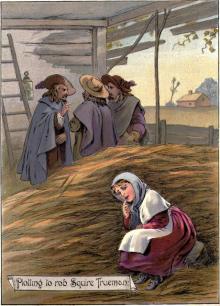 Goody Two-Shoes
Goody Two-Shoes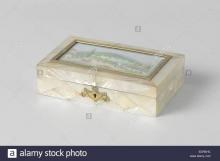 The Pearl Box
The Pearl Box And when you gone...
And when you gone... Stranger At The Other Corner
Stranger At The Other Corner My Young Days
My Young Days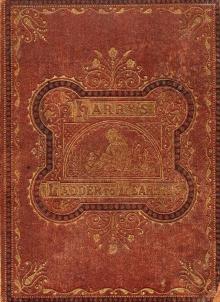 Harry's Ladder to Learning
Harry's Ladder to Learning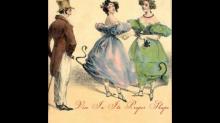 Vice in its Proper Shape
Vice in its Proper Shape_preview.jpg) Promise (the curse)
Promise (the curse)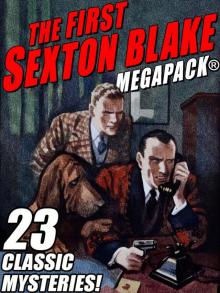 The First Sexton Blake
The First Sexton Blake Golden Moments
Golden Moments Hildebrand; or, The Days of Queen Elizabeth, An Historic Romance, Vol. 2 of 3
Hildebrand; or, The Days of Queen Elizabeth, An Historic Romance, Vol. 2 of 3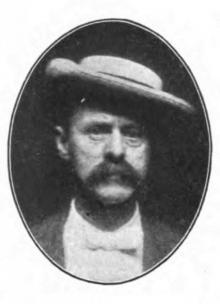 The Ice Queen
The Ice Queen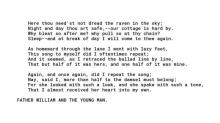 Phebe, the Blackberry Girl
Phebe, the Blackberry Girl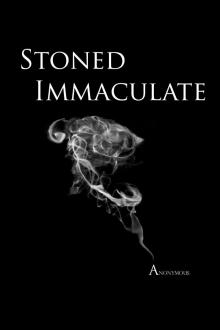 Stoned Immaculate
Stoned Immaculate Hildebrand; or, The Days of Queen Elizabeth, An Historic Romance, Vol. 3 of 3
Hildebrand; or, The Days of Queen Elizabeth, An Historic Romance, Vol. 3 of 3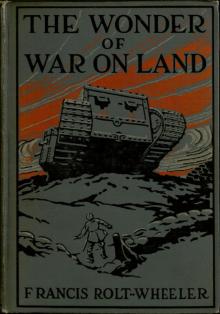 The Wonder of War on Land
The Wonder of War on Land Breaking Bailey
Breaking Bailey The Little Girl Who Was Taught by Experience
The Little Girl Who Was Taught by Experience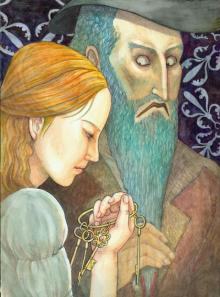 The Popular Story of Blue Beard
The Popular Story of Blue Beard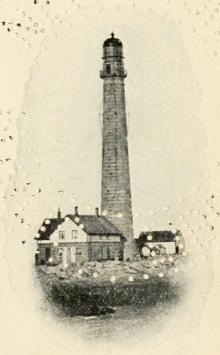 The Life Savers: A story of the United States life-saving service
The Life Savers: A story of the United States life-saving service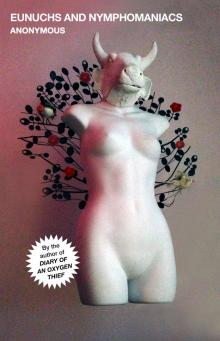 Eunuchs and Nymphomaniacs
Eunuchs and Nymphomaniacs Hildebrand; or, The Days of Queen Elizabeth, An Historic Romance, Vol. 1 of 3
Hildebrand; or, The Days of Queen Elizabeth, An Historic Romance, Vol. 1 of 3 Kitty's Picnic, and Other Stories
Kitty's Picnic, and Other Stories Two Yellow-Birds
Two Yellow-Birds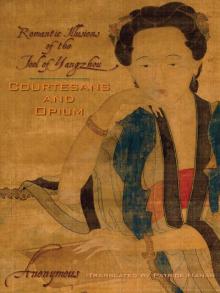 Courtesans and Opium
Courtesans and Opium The Emigrant's Lost Son; or, Life Alone in the Forest
The Emigrant's Lost Son; or, Life Alone in the Forest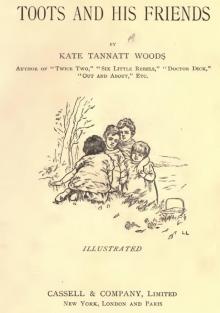 Toots and His Friends
Toots and His Friends Fast Nine; or, A Challenge from Fairfield
Fast Nine; or, A Challenge from Fairfield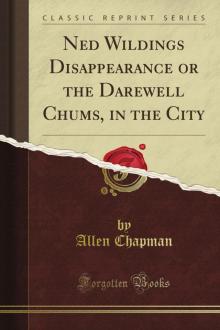 Ned Wilding's Disappearance; or, The Darewell Chums in the City
Ned Wilding's Disappearance; or, The Darewell Chums in the City A Picture-book of Merry Tales
A Picture-book of Merry Tales The Trail of The Badger: A Story of the Colorado Border Thirty Years Ago
The Trail of The Badger: A Story of the Colorado Border Thirty Years Ago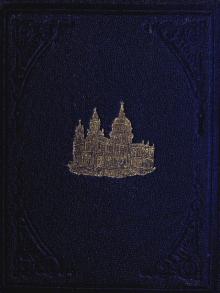 Peter Parley's Visit to London, During the Coronation of Queen Victoria
Peter Parley's Visit to London, During the Coronation of Queen Victoria The Rainbow, After the Thunder-Storm
The Rainbow, After the Thunder-Storm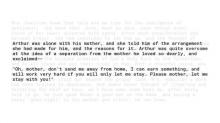 Arthur Hamilton, and His Dog
Arthur Hamilton, and His Dog The Story of the White-Rock Cove
The Story of the White-Rock Cove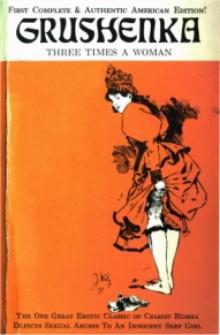 Grushenka. Three Times a Woman
Grushenka. Three Times a Woman Adventures of a Squirrel, Supposed to be Related by Himself
Adventures of a Squirrel, Supposed to be Related by Himself Falling in Love...Again
Falling in Love...Again The Colossal Camera Calamity
The Colossal Camera Calamity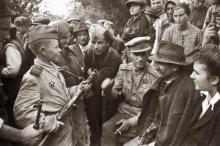 Child of the Regiment
Child of the Regiment Elimination Night
Elimination Night The Kingfisher Secret
The Kingfisher Secret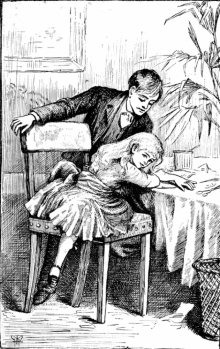 Left to Ourselves; or, John Headley's Promise.
Left to Ourselves; or, John Headley's Promise. The Island of Gold: A Sailor's Yarn
The Island of Gold: A Sailor's Yarn Adventures of Bobby Orde
Adventures of Bobby Orde Twain, Mark: Selected Obituaries
Twain, Mark: Selected Obituaries When Love Goes Bad
When Love Goes Bad The Incest Diary
The Incest Diary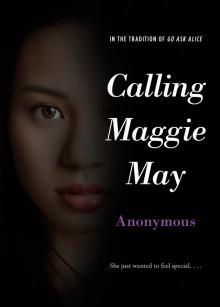 Calling Maggie May
Calling Maggie May The Infidelity Diaries
The Infidelity Diaries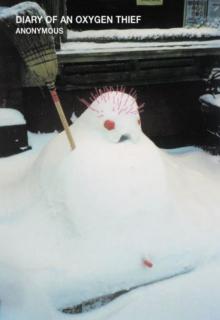 Diary of an Oxygen Thief (The Oxygen Thief Diaries)
Diary of an Oxygen Thief (The Oxygen Thief Diaries) ARABELLA
ARABELLA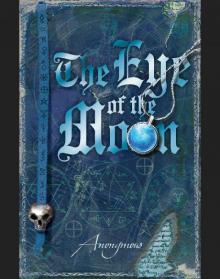 The Eye of the Moon
The Eye of the Moon Dara
Dara THE ALTAR OF VENUS: The Making of a Victorian Rake
THE ALTAR OF VENUS: The Making of a Victorian Rake The Book of Death
The Book of Death The Book of David
The Book of David The Devil's Graveyard
The Devil's Graveyard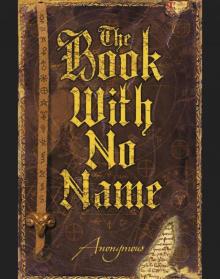 The Book With No Name
The Book With No Name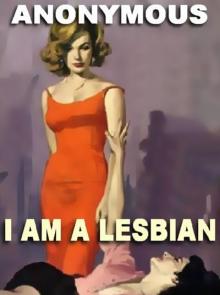 I Am A Lesbian
I Am A Lesbian Njal's Saga
Njal's Saga The Epic of Gilgamesh
The Epic of Gilgamesh Darling
Darling Tal, a conversation with an alien
Tal, a conversation with an alien Go Ask Alice
Go Ask Alice Aphrodizzia
Aphrodizzia The Campus Trilogy
The Campus Trilogy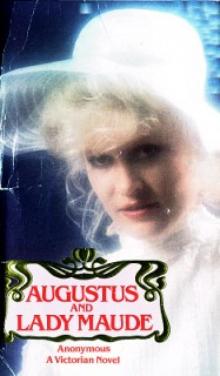 Augustus and Lady Maude
Augustus and Lady Maude Lucy in the Sky
Lucy in the Sky Sight Unseen
Sight Unseen Pleasures and Follies
Pleasures and Follies The Red Mohawk
The Red Mohawk A Fucked Up Life in Books
A Fucked Up Life in Books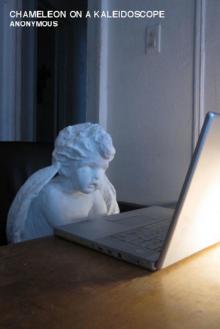 Chameleon On a Kaleidoscope (The Oxygen Thief Diaries)
Chameleon On a Kaleidoscope (The Oxygen Thief Diaries) Astrid Cane
Astrid Cane BEATRICE
BEATRICE The Song of the Cid
The Song of the Cid